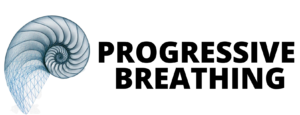50 Dangers of Chronic, Unconscious Mouth Breathing
1. Increased Mortality Risk: Overall increased risk of premature death from the cumulative effects of chronic mouth breathing.
2. Sleep Apnea: Increased risk of obstructive sleep apnea due to airway collapse.
3. Snoring: Greater likelihood of snoring, disrupting sleep for both the individual and their partner.
4. Poor Sleep Quality: Reduced oxygen levels during sleep, leading to fragmented and poor-quality rest.
5. Insomnia: Difficulty falling and staying asleep, resulting in chronic insomnia.
6. Daytime Fatigue: Persistent tiredness and lack of energy throughout the day.
7. Reduced Exercise Performance: Lower oxygen intake during exercise, leading to decreased endurance and performance.
8. Slower Recovery: Prolonged recovery times after physical activity due to inadequate oxygenation of tissues.
9. Postural Problems: Forward head posture and rounded shoulders caused by improper breathing mechanics.
10. Facial Deformities: Altered facial structure, including elongated face and high-arched palate.
11. Misaligned Teeth: Increased risk of dental malocclusion and crowding of teeth.
12. Weak Jaw Muscles: Underdeveloped jaw muscles leading to jaw instability and discomfort.
13. Narrow Airway: Chronic mouth breathing can contribute to a narrow and less efficient airway.
14. Dry Mouth: Constant dryness of the mouth, leading to discomfort and difficulty swallowing.
15. Bad Breath: Higher incidence of halitosis due to lack of saliva production and mouth dryness.
16. Gingivitis: Increased risk of gum inflammation and gingivitis due to dry mouth and bacterial growth.
17. Tooth Decay: Greater susceptibility to cavities and tooth decay from reduced saliva, which helps protect teeth.
18. Throat Infections: Higher risk of throat infections and soreness due to inhalation of unfiltered air.
19. Digestive Issues: Poor digestion and gastrointestinal discomfort from improper breathing and reduced diaphragm movement.
20. Acid Reflux: Increased likelihood of acid reflux and GERD due to pressure changes in the abdomen.
21. Speech Problems: Difficulty with speech articulation and pronunciation, particularly in children.
22. Sinus Infections: More frequent sinus infections due to inadequate air filtration and drying of nasal passages.
23. Asthma Exacerbation: Worsening of asthma symptoms due to improper breathing patterns.
24. Increased Stress: Elevated stress levels from shallow, rapid breathing that activates the sympathetic nervous system.
25. Anxiety: Greater incidence of anxiety and panic attacks from inefficient breathing and poor oxygen exchange.
26. Decreased Concentration: Impaired cognitive function and concentration from reduced oxygen supply to the brain.
27. Memory Issues: Difficulty with memory retention and recall due to poor sleep and oxygenation.
28. Impaired Immune Function: Weakened immune system, making the body more susceptible to infections.
29. Hormonal Imbalance: Disruption in hormonal balance due to chronic stress and poor sleep.
30. Weight Gain: Increased risk of weight gain and obesity from poor metabolic function and sleep disruption.
31. High Blood Pressure: Elevated blood pressure from chronic stress and inadequate oxygenation.
32. Heart Disease: Greater risk of cardiovascular disease due to persistent low oxygen levels and stress.
33. Diabetes Risk: Increased likelihood of developing type 2 diabetes from stress and poor sleep.
34. Chronic Fatigue Syndrome: Higher risk of chronic fatigue syndrome from prolonged oxygen deprivation.
35. Thyroid Dysfunction: Potential thyroid gland dysfunction from chronic stress and poor respiratory health.
36. Reduced Libido: Decreased sex drive and sexual function from hormonal imbalances and stress.
37. Depression: Higher incidence of depression from poor sleep, stress, and inadequate oxygenation.
38. Reduced Athletic Performance: Impaired athletic performance from inefficient breathing and poor recovery.
39. Stunted Growth in Children: Slowed growth and development in children due to poor oxygenation and sleep.
40. Attention Deficit Disorders: Increased risk of ADHD and other attention disorders in children from chronic mouth breathing.
41. Hyperactivity: Higher levels of hyperactivity in children due to poor sleep and oxygenation.
42. Learning Disabilities: Greater incidence of learning disabilities in children from inadequate oxygen supply to the brain.
43. Ear Infections: More frequent ear infections from improper air pressure regulation in the Eustachian tubes.
44. Hearing Loss: Potential hearing loss from chronic ear infections and inflammation.
45. Tonsil and Adenoid Problems: Enlargement and frequent infections of tonsils and adenoids.
46. Decreased Taste Sensation: Reduced ability to taste food due to chronic dry mouth.
47. Voice Changes: Altered voice quality from chronic throat dryness and irritation.
48. Poor Lung Function: Impaired lung function and reduced capacity from chronic shallow breathing.
49. Lowered Stamina: Decreased stamina and endurance from inefficient breathing and poor oxygen exchange.
50. Premature Aging: Accelerated aging process from chronic stress and poor respiratory health.
Read 100 Benefits of Nasal Breathing for Optimal Health.



